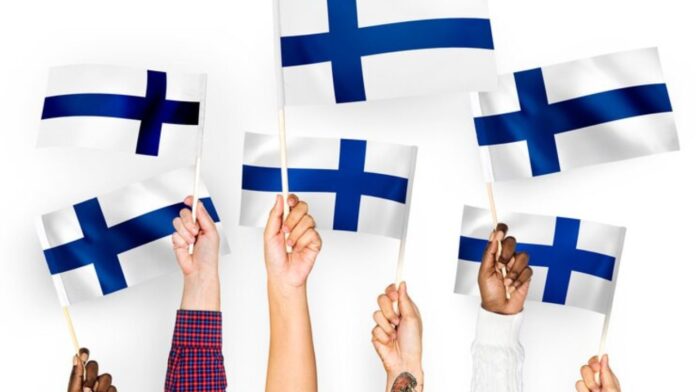In a world where the pursuit of happiness is an eternal quest, the latest World Happiness Report has unveiled a striking contrast between the joyous Nordic nations and the mounting dissatisfaction among the youth in Western societies. Released on the International Day of Happiness, this comprehensive study offers a profound glimpse into the intricate tapestry of human well-being across the globe.
For an impressive seventh consecutive year, Finland has secured the coveted top spot as the happiest nation on Earth. This remarkable achievement is a testament to the country’s deep-rooted commitment to fostering an environment conducive to joy and contentment. The Nordic nation’s neighbors—Sweden, Denmark, and Iceland—have also retained their positions among the top ten happiest countries, solidifying the region’s reputation as a bastion of well-being and life satisfaction.
However, the report has sounded an alarming bell, revealing a concerning trend of rising unhappiness, particularly among the youth in Western societies. In a startling development, two prominent nations—the United States and Germany—have dropped out of the top 20 for the first time since the report’s inception over a decade ago. This significant decline in overall happiness levels has cast a shadow on the once-vibrant well-being landscape of these global powerhouses.
Filling the void left by the United States and Germany are Costa Rica and Kuwait, landing at the 12th and 13th positions, respectively. These nations have demonstrated resilience and a commitment to fostering an environment that nurtures happiness and life satisfaction among their citizens.
Interestingly, Eastern European nations, including Serbia, Bulgaria, and Latvia, have reported the most significant increases in happiness levels. This unexpected surge in well-being has provided a glimmer of hope amidst the global turmoil, suggesting that even in the face of adversity, the pursuit of happiness can prevail.
The survey, spanning an impressive 143 countries and territories, employs a comprehensive methodology to evaluate life satisfaction on a scale from zero to ten. It considers a diverse range of factors, including GDP per capita, social support networks, healthy life expectancy, freedom of choice, generosity, and corruption levels, painting a multifaceted picture of the determinants of happiness. Additionally, you can also read about- Countries Longest Life Expectancy.
While Finland’s success in fostering happiness is rooted in a multitude of factors, including a close connection to nature, a healthy work-life balance, and a strong welfare system, the report has shed light on a concerning trend in parts of the Western world. Younger generations, particularly in North America, are experiencing what has been termed a “mid-life crisis,” marked by heightened feelings of loneliness and dissatisfaction with their lives.
Experts attribute this alarming trend to a confluence of complex factors, each contributing to the erosion of well-being among Western youth. The negative impacts of social media, with its potential for cyberbullying, unrealistic expectations, and constant comparisons, have been identified as a significant contributor to this growing discontent.
Additionally, increased polarization over social issues, fueled by divisive rhetoric and a lack of constructive dialogue, has created an environment of tension and conflict, further exacerbating the sense of unhappiness among the younger generation.
Moreover, economic inequality has made it increasingly difficult for young people to achieve financial stability and homeownership, two pillars traditionally associated with a sense of accomplishment and well-being. As the cost of living continues to rise and job prospects remain uncertain, the dream of financial independence and security has become increasingly elusive for many.
In stark contrast, the report highlights the unwavering commitment of the Finnish people to fostering a society that prioritizes well-being. According to Jennifer De Paola, a happiness researcher at the University of Helsinki, the close connection to nature and a healthy work-life balance contribute significantly to Finland’s world-leading happiness ratings.
“Finnish society is permeated by a sense of trust, freedom, and a high level of autonomy,” De Paola explained. She further emphasized the country’s strong welfare system, trust in state authorities, low levels of corruption, and free healthcare and education as key pillars underpinning the nation’s exceptional well-being. If you want you can also read- Poorest Countries in the World.
Perhaps most notably, De Paola believes that Finns have cultivated a “more attainable understanding of what a successful life is,” in contrast to places like the United States, where success is often equated solely with financial gain. This holistic perspective on life’s fulfillment may serve as a guiding light for societies grappling with the pursuit of true happiness.
As the world grapples with these contrasting narratives, the pursuit of happiness remains a crucial endeavor, one that requires collective efforts to address the root causes of discontent and create societies that foster well-being for all ages and backgrounds. The World Happiness Report serves as a clarion call, reminding us that the path to joy is paved with understanding, empathy, and a commitment to building a world where happiness is not a fleeting moment but a sustainable way of life.



















![10 Countries With the Best Healthcare in the World [Statistical Analysis] Countries With the Best Healthcare in the World](https://articleify.com/wp-content/uploads/2025/07/Countries-With-the-Best-Healthcare-in-the-World-1-150x150.jpg)









